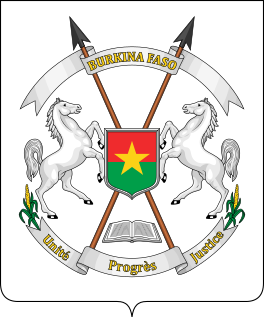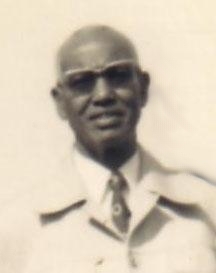
Politics of Djibouti takes place in a framework of a presidential representative democratic republic, whereby the executive power is exercised by the President and the Government. Legislative power is vested in both the Government and the National Assembly. The party system and legislature are dominated by the socialist People's Rally for Progress. In April 2010, a new constitutional amendment was approved. The President serves as both the head of state and head of government, and is directly elected for single six-year term. Government is headed by the President, who appoints the Prime Minister and the Council of Ministers on the proposal of the latter. There is also a 65-member chamber of deputies, where representatives are popularly elected for terms of five years. Administratively, the country is divided into five regions and one city, with eleven additional district subdivisions. Djibouti is also part of various international organisations, including the United Nations and Arab League.

Latvia elects on national level a legislature. The Saeima has 100 members, elected for a four-year term by proportional representation with a 5% threshold. An unmodified Sainte-Laguë method is used to allocate seats. The parliamentary elections are held on the first Saturday of October. Locally, Latvia elects municipal councils, consisting of 7 to 60 members, depending on the size of the municipality, also by proportional representation for a four-year term.

Elections in Angola take place within the framework of a multi-party democracy and a presidential system. The National Assembly is directly elected by voters, whilst the leader of the largest party or coalition in the National Assembly automatically becomes President. The country is currently a one-party dominant state, with the MPLA as the dominant party.

Elections in Benin take place within the framework of a multi-party democracy and a presidential system. Both the President and the National Assembly are directly elected by voters, with elections organised by the Autonomous National Electoral Commission (CENA).

Bulgaria elects on national level a head of state - the president - and a legislature. The president is elected for a five-year term directly by the people. The National Assembly has 240 members, elected for a four-year term by proportional representation in multi-seat constituencies with a 4% threshold. Bulgaria has a multi-party system, in which no one party often has a chance of gaining power alone, and parties must work with each to form governments.

National-level elections in Djibouti are held for the President and the unicameral National Assembly.

Elections in Egypt are held for the President and a unicameral legislature. The President of Egypt is elected for a four-year term by popular vote.

Elections in Kenya take place within the framework of a multi-party democracy and a presidential system. The President, Senate and National Assembly are directly elected by voters, with elections organised by the Independent Electoral and Boundaries Commission (IEBC).

Philippine elections are of several types. The president, vice-president, and the senators are elected for a six-year term, while the members of the House of Representatives, governors, vice-governors, members of the Sangguniang Panlalawigan, mayors, vice-mayors, members of the Sangguniang Panlungsod/members of the Sangguniang Bayan, barangay officials, and the members of the Sangguniang Kabataan are elected to serve for a three-year term.

Elections in Niger take place within the framework of a semi-presidential system. The President and National Assembly are elected by the public, with elections organised by the Independent National Electoral Commission (CENI).

Parliamentary elections were held in Algeria on 26 December 1991. The first multi-party elections since independence, they were cancelled by a military coup after the first round after the military expressed concerns that the Islamic Salvation Front, which was almost certain to win more than the two-thirds majority of seats required to change the constitution, would democratically form an Islamic state. The annulling of the election led to the outbreak of the Algerian Civil War.

Presidential elections were held in Niger on 27 February 1993, with a second round on 27 March after no candidate passed the 50% barrier in the first round. They were the first multi-candidate presidential elections held in the country since independence in 1960, following constitutional changes approved in a referendum the previous year. Although Mamadou Tandja of the ruling National Movement for the Development of Society won the most votes in the first round, he lost in the second round to Mahamane Ousmane of the Democratic and Social Convention party. Voter turnout was only 32.5% in the first round and 35.2% in the second.

The 2005 Djiboutian presidential election took place on the 8 April 2005. The incumbent President of Djibouti, Ismail Omar Guelleh, was re-elected to a second six-year term in an unopposed election.

A constitutional referendum was held in Niger on 26 December 1992. The new constitution would restore multi-party democracy for the first time since 1960, whilst also allowing unlimited number of five-year terms for the President. It was approved by 89.79% of voters, with a turnout of 56.6%. Upon its promulgation on 22 January 1993, the Third Republic came into being, which lasted until the 1996 coup.

The 2003 Djiboutian parliamentary election took place in Djibouti on 10 January 2003 to elect the National Assembly of Djibouti. The ruling coalition of President Ismail Omar Guelleh won all 65 seats in the election defeating an opposition coalition.

Parliamentary elections were held in Burkina Faso on 24 May 1992. They were the first parliamentary elections held in the country since 1978, and the first to be held under the 1991 constitution. The result was a victory for the Organization for Popular Democracy – Labour Movement, which won 78 of the 107 seats in the National Assembly.

Parliamentary elections were held in Djibouti on 21 May 1982. They were first elections for the National Assembly since independence in 1977, and were open only to the People's Rally for Progress, which had become the country's sole legal party the previous year. The RPP put forward a list of 65 candidates for the 65 seats, which was approved by 100% of voters with a turnout of 92.4%.

Parliamentary elections were held in Djibouti on 18 December 1992. They were the first elections following a referendum in September that reintroduced multi-party democracy, albeit with a limit of four parties, although they were boycotted by the Front for the Restoration of Unity and Democracy. The ruling People's Rally for Progress won 75% of the vote and all 65 seats in the National Assembly. Voter turnout was only around 48.5%, as many Afars did not vote.

A constitutional referendum was held in São Tomé and Príncipe on 22 August 1990. The new constitution would introduce multi-party democracy for the first time since independence, as well as limiting the President to two terms. It was approved by 95.3% of voters. Parliamentary and presidential elections were held the following year.

A constitutional referendum was held in Togo on 27 September 1992. The changes to the constitution would restore multi-party democracy and were approved by 99.17% of voters with a 74.2% turnout.
















